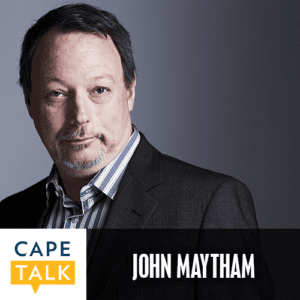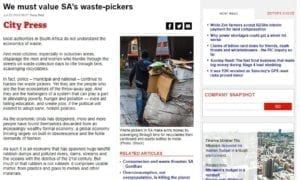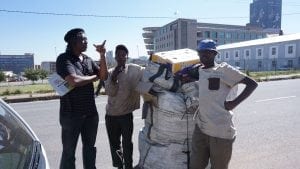Issue
Informal waste pickers play a critical role in collecting and recycling the waste of South Africa's major cities, but their role is not well recognised.
How we are helping
Supporting WIEGO's project to organise waste pickers to effectively engage in decision-making to secure better working conditions, improve livelihoods and their recognition.
About the project
Approximately 108 million tonnes of waste were generated in South Africa in 2012; 90% of this waste ended up in landfills. On these sites, and in inner-city streets, informal waste pickers are collecting and recycling what others have thrown away, a service for which they are not paid.
Women in Informal Employment: Globalizing and Organizing (WIEGO) will support waste pickers and their organisations in Johannesburg, Sasolburg, and Pretoria, South Africa, to effectively participate in decision-making in order to secure better working conditions and improve livelihoods. The research in many cities suggests that the formal inclusion of waste pickers in municipal waste management contributes to higher recycling rates, increased efficiency and cost effectiveness, as well as significant environmental benefits. Despite these contributions, waste pickers in the project locations struggle for formal recognition and inclusion in solid waste management plans, and for decent working conditions and fair compensation.
Through this project WIEGO will support the organising efforts of local waste picker organisations, to ensure the official inclusion of waste pickers in municipal waste management policies and systems, and to secure better working conditions and more secure livelihoods. This will be achieved through training, awareness-raising (both for waste pickers and decision makers), and facilitated negotiations and liaison with key officials and allies. Further, waste picker organisations will be strengthened within the context of vibrant regional, national, and international networks.
Endorsed project title: Improving the environment and livelihoods of waste pickers in South Africa.
Project Partners
Project Updates

Recycling in Johannesburg has become compulsory as of last year due to persisting landfill issues. However, the new separation at…
Read now
Informal waste pickers in South Africa have been committed to improving the environment as well as their livelihoods. Waste pickers…
Read now
The South African Broadcasting Corporation's segment documents the impact of privatisation of recycling on the waste picker community in South…
Read now
Four months ago, WIEGO’s project with the Commonwealth Foundation Waste integration South Africa (WISA) took an unplanned turn as Johannesburg’s…
Read now
We support people's participation in democracy and development by providing grants, platforms, and expertise.


